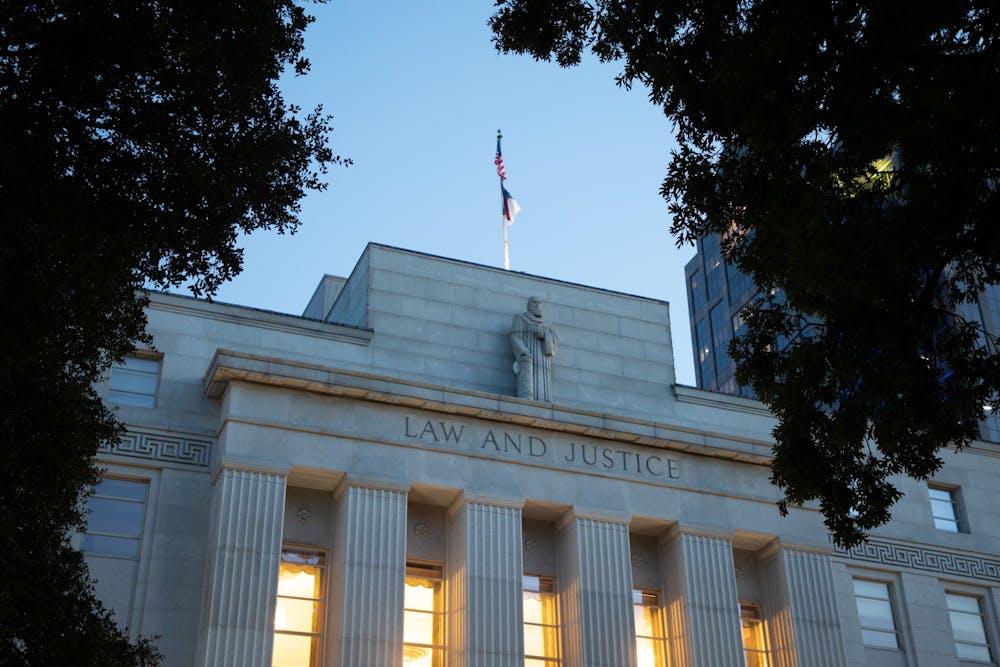The 5-2 Republican majority on the N.C. Supreme Court overturned Harper v. Hall, a case decided by the court's previous Democratic majority that determined congressional and state House maps drawn by the N.C. General Assembly unfairly favored Republicans.
Chief Justice Paul Newby wrote the opinion. He opened by saying that the state should return to "fundamental principles" outlined in the state constitution, which he argued gives the legislature full power over redistricting.
A reheard case is unusual at the state Supreme Court level in North Carolina. A petition for rehearing had been granted by the court only twice in the past 30 years prior to its granting of two petitions in February, just weeks after they were decided.
Previous decisions in Harper, Newby wrote, provided unclear guidelines for redistricting, and accepted the legislative defendants' argument that that lack of guidance set the court up to fail.
He wrote that partisan gerrymandering is a political question and is therefore not justiciable, just as he did in the dissent in the original Harper decision in December. The N.C. General Assembly will have full power over redistricting, which needs to be completed before the 2024 elections.
The previous majority had ruled that the claims were justiciable because the right to a fair vote is protected under the state constitution.
“In a single blow, the majority strips millions of voters of this state of their fundamental, constitutional rights and delivers on the threat that 'our decisions are fleeting, and our precedent is only as enduring as the terms of the justices who sit on the bench,'" Associate Justice Anita Earls wrote in her dissent on the new decision.
She went on to argue that the legislative defendants — including House Speaker Tim Moore (R-Cleveland, Rutherford) and Senate President Pro Tem Phil Berger (R-Guilford, Rockingham) — want a "do over," and want to draw "even more egregiously gerrymandered maps."
"The Republican State Supreme Court has ignored the constitution and followed the marching orders of the Republican legislature by declaring open season for their extreme partisan gerrymandering and is destroying this court's reputation for independence," Gov. Roy Cooper said in a tweet. "Republican legislators wanted a partisan court that would issue partisan opinions and that's exactly what this is."




